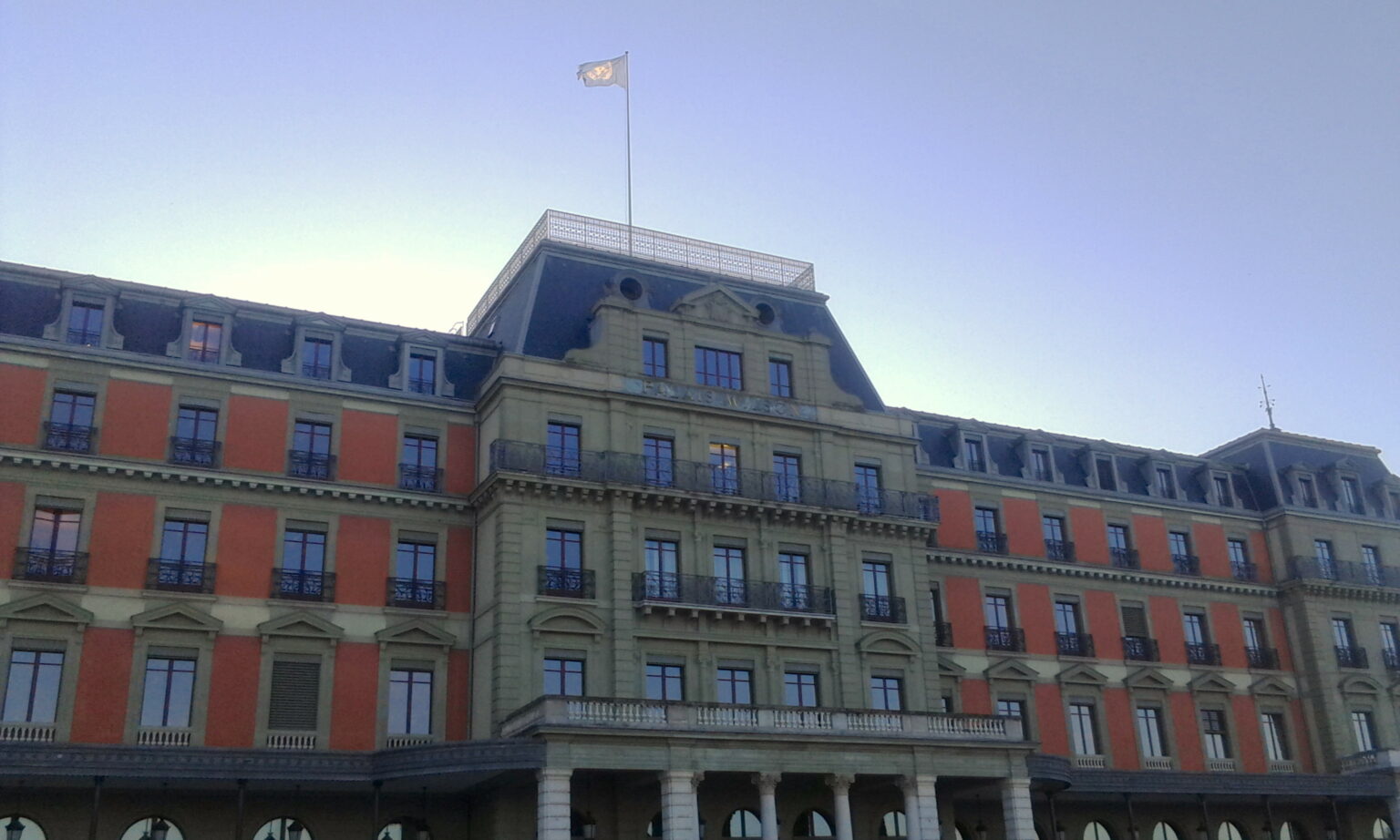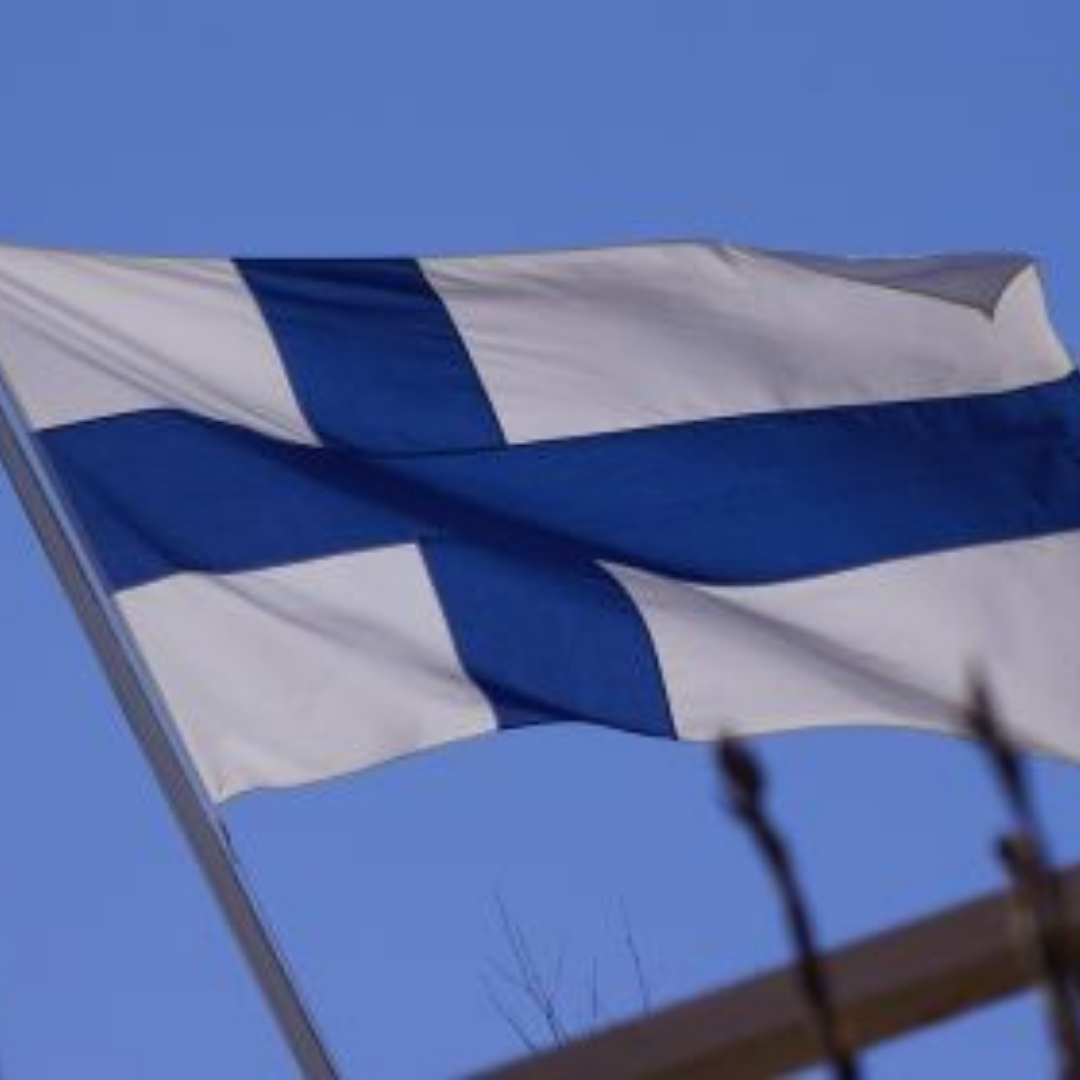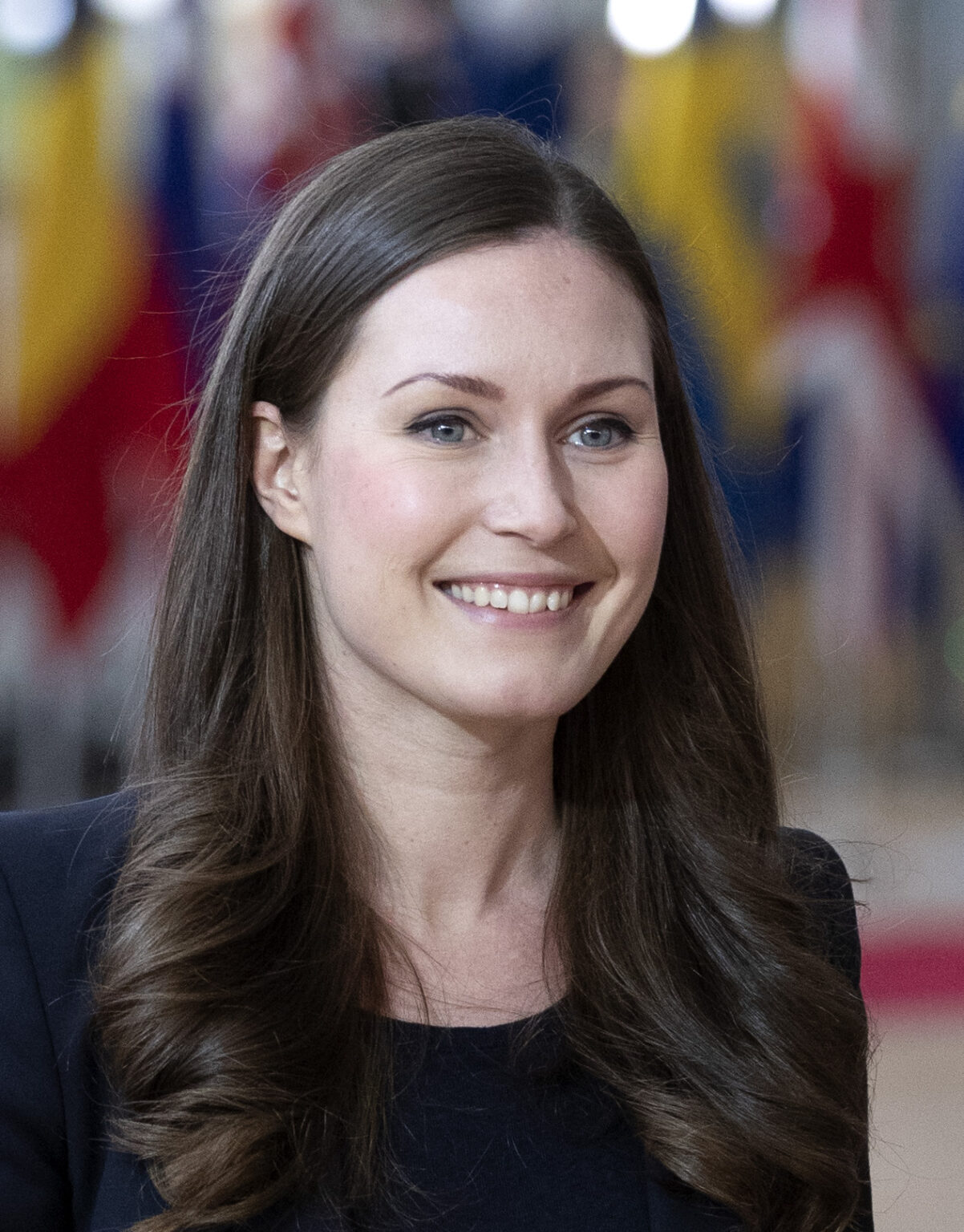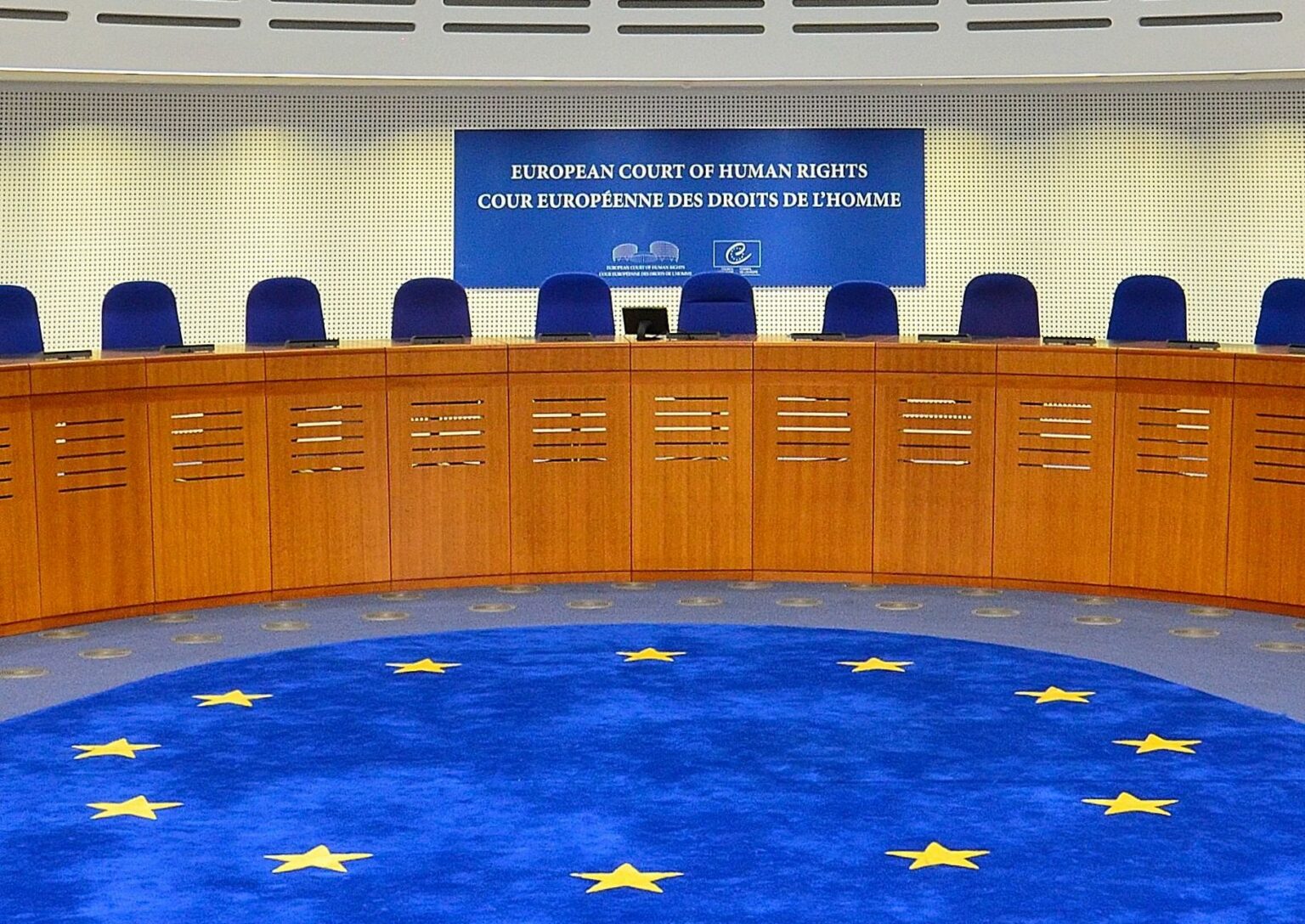How did Finland and Greece end up in the same place on the Rainbow Map?

In 2024, Greece and Finland have found themselves sharing the same spot—sixth place—on ILGA-Europe’s Rainbow Map, and that tells us a lot about the diverse ways in which LGBTI rights are changing across Europe.
In an unusual turn of events, Greece and Finland have both secured sixth place on the 2024 ILGA-Europe Rainbow Map. While their scores are identical, the details behind their rankings reveal key differences in their legislative approaches.
What changed from last year?
Finland has retained its sixth-place position from last year, reflecting steady progress in certain areas. A significant development was the lifting of blood donation restrictions for men who have sex with men (MSM) in December 2023. Over 1,700 people have applied for LGR based on self-determination under the new legislation that entered into force in April 2023. However, Finland still lacks a comprehensive LGBTI action plan following the expiration of the Government Action Plan for Gender Equality 2020–2023.
Greece has seen a significant rise from 13th to sixth place, driven by substantial legislative reforms. The introduction of marriage equality, joint adoption, and second parent adoption for same-sex couples marked a major advance. This law also extended non-discrimination principles across various sectors, providing a more comprehensive legal protection for LGBTI people. Despite these gains, Greece faces ongoing issues. Public events in 2023 were reportedly not adequately protected by public authorities, and there has been concern over rising hate speech and hate crimes.
Similarities and differences
Despite their shared score of 70.78% on the Rainbow Map, the legislative landscapes of Greece and Finland are marked by both convergence and divergence. Both countries excel in areas such as employment, education, and health protections for sexual orientation, gender identity, and sex characteristics. They also have comprehensive hate crime and hate speech laws, and have ensured the protection of LGBTI civil society.
However, differences in their legal frameworks reveal contrasting approaches to LGBTI rights.
- Finland’s constitution explicitly includes protections for sexual orientation and sex characteristics, a provision that’s absent in Greece.
- Conversely, Greece has enacted bans on conversion practices for both sexual orientation and gender identity, which Finland has yet to adopt.
- Greece also bans unnecessary medical interventions on intersex children.
- Greece has also developed equality action plans covering sexual orientation, gender identity, and sex characteristics, which Finland now lacks.
- Finland allows trans people to access legal gender recognition based on self-determination, while in Greece trans activists are still fighting for a fair, transparent legal framework for legal gender recognition based on a process of self-determination and free from abusive requirements.
- Finally, Finland allows medically assisted insemination for couples and recognises trans parenthood, while Greece does not.
Although they are joint sixth place on the Rainbow Map, both countries have long way to go to achieve full equality and human rights for LGBTI people. This is why, with the consultation of LGBTI organisations, we prepared a list of recommendations to improve the legal and policy situation of LGBTI people in both countries.
For Finland, we recommend removing the age restriction in the existing legal gender recognition framework, banning conversion practices, and prohibiting medical intervention on intersex minors. For Greece, our recommendations include introducing a legal framework for legal gender recognition based on a process of self-determination, recognising trans parenthood, and strengthening police protection for LGBTI public events.
The shared ranking of Greece and Finland on the 2024 Rainbow Map is a fascinating case study in the diverse approaches to LGBTI rights within Europe. The Rainbow Map not only tracks these advancements but also serves as a vital tool for identifying areas in need of improvement. For those interested in delving deeper, there is a feature to compare countries, explore individual categories, download datasets and graphics, and gain insights into the current state of LGBTI rights across Europe.
Finland violated rights of a lesbian mothers’ child by rejecting his asylum application, UN finds

The UN Committee on the Rights of the Child found that Finland failed to consider the best interests of the child of a lesbian couple when assessing his asylum request. Now the country is under an obligation to provide reparation.
The UN Committee on the Rights of the Child found that Finland failed to consider the best interests of the child of a lesbian couple when rejecting his asylum request, and to protect him against a real risk of irreparable harm when the family had no other choice but to return to Russia.
“This is a ground-breaking decision: it is the first asylum-related case from the UN system involving a child who is facing specific risks on the grounds of his mother’s sexual orientation, and of the family they form together”, said Kseniya Kirichenko, Programme Coordinator at ILGA World. “This is also the first time that the UN Committee on the Rights of the Child made a decision on sexual orientation issues, and the first case on children in same-sex families in Treaty Bodies’ practice altogether”.
The Committee’s decision was informed by a third-party intervention submitted jointly by ILGA World, ILGA-Europe, the International Commission of Jurists (ICJ), Child Rights International Network (CRIN) and Network of European LGBTIQ* Families Associations (NELFA).
The Committee’s decision concerned an application filed on behalf of A. B., now 11, who had fled Russia together with his mothers after the family faced harassment and threats, and he had started to suffer from bullying and isolation at school. These were the years when regions across Russia had started to introduce so-called “anti-propaganda laws”, which have contributed to an increasingly hostile environment against people of diverse sexual orientations, gender identities and expressions. Legislation that bars “promoting non-traditional sexual relationships” was eventually adopted in 2013 at the national level.
Fearing for their safety, the family fled to Finland, where the child started to attend school, made friends, and no longer had to live in fear of calling both of his parents “mother” and of talking to anyone about his family. However, Finland rejected their application for asylum: authorities recognised the past experiences of threats, bullying and discrimination; nonetheless, they concluded that these could not be considered as amounting to persecution.
The family was left with no other choice but to return to Russia. However, the complaint against Finland reached the United Nations, where in February 2021 the Committee on the Rights of the Child concluded that Finland “failed to adequately take the best interests of the child as a primary consideration when assessing the author’s asylum request based on his mothers’ sexual orientation, and to protect him against a real risk of irreparable harm in case of return to the Russian Federation”.
“This is an important decision, setting out necessary standards for the protection of children in LGBTI families who are at heightened risk of discrimination, especially in countries like Russia, where LGBTI people face stigmatisation and hostilities in their everyday lives”, said Arpi Avetisyan, Head of Litigation at ILGA–Europe. “States must always ensure that the best interests of the child are effectively and systematically taken into account in the context of asylum proceedings, and that they are not discriminated based on their parents’ sexual orientation.”
While finding Finland in violation of articles 3, 19, and 22 of the Convention on the Rights of the Child, the UN committee pointed out that the state “is under an obligation to provide an effective reparation to the author, including adequate compensation.”
The decision has the potential to bring about change. “In the past, we have seen that international decisions on lesbian, gay and bisexual asylum seekers actually led to giving the applicants residency in the respondent States”, concluded Kirichenko. “We hope that Finland will also ensure that this family will be able to come back and to finally have a happy and safe life”.
Notes for editors:
UN Treaty Bodies (Committees): committees of independent experts appointed to review the implementation by State parties of an international human rights treaty.
Committee on the Rights of the Child: part of the UN Treaty Bodies, it is a United Nations body of 18 Independent experts that monitors the implementation of the Convention on the Rights of the Child by its State parties.
More information about Treaty Bodies is available in ILGA World’s annual Treaty Bodies reports and strategic litigation toolkit. Recordings of ILGA World’s webinars on United Nations advocacy, including on Treaty Bodies, are available here.
Additional resources:
Press releases on the case
- Finnish Rainbow Families Association Sateenkaariperheet – Regnbågsfamiljer ry
- Finland’s Ministry of Foreign Affairs
Media contacts:
- Daniele Paletta, ILGA World communications coordinator, media@ilga.org
- Ana Muñoz Padrós, ILGA-Europe communications officer, ana@ilga-europe.org
- Björn Sieverding, NELFA media team, media@nelfa.org
Letter to Finnish Prime Minister Sanna Marin: in regards to the new parental law in Finland

Together with NELFA we call on the Finnish government to address the needs of rainbow families in the new Finnish Parental Law. This is an opportunity for Finland to become a European leader in the recognition of the rights of all families.
Dear Prime Minister Marin,
We are writing to you on behalf of ILGA-Europe (the European region of the International Lesbian, Gay, Bisexual, Trans and Intersex Association) and NELFA (the Network of European LGBTIQ* Families Associations).
We are pleased to see that your government has decided to put forward a new Parental Law, which has the potential of allowing for full recognition of Rainbow Families. With this letter we want to encourage you now not to stick to the minimum necessary to avoid discrimination of same-sex couples and their children, but to use this occasion to be the first country in Europe to put in place a Parental Law that truly treats all families equally.
The Finnish government has been one of the leading countries in Europe in setting high standards for equality and non-discrimination in recent years, for example in adopting non-discrimination and equality legislation which protects LGBTI people from discrimination in all areas of life (including comprehensive protection on the grounds of sexual orientation, gender identity, gender expression and sex characteristics since 2015), and in requiring that the national curricula include information on the diversity of gender and sexual orientations. The current legislative proposal and process of the Parental Law is another chance to become a leader on the full recognition of families in all their manifold compositions in our society.
Currently, the instructions given for the draft law encompass only one benefit for rainbow families: the law would enable the use of sperm in a female couple’s fertility treatment, also in cases in which the donor can be confirmed as the father of the child. As important as this recognition is, the government should not miss the chance to fully protect families in all their realities, but use this unique opportunity to ensure:
- that the child’s has access to the full extent of rights related to legal parenthood, such as the right to alimony, right to inheritance and the unquestionable right of access to all de facto parents.
- that trans and non-binary people are fully recognised by the law also when becoming parents and introduce a non-gendered parental registration.
Ignoring the needs of children in rainbow families in the Parental Act is not in line with the spirit and records of the government program. The government program states that “In Finland, about a third of all families are no longer traditional nuclear families: for example, the number of recomposed families and rainbow families has increased. Current policies and forms of support do not meet the real needs of all families.”
Across Europe multi-parenting is a reality: same-sex couples forming bonds with a third person or another couple to create a family and to become joint parents – with equally divided parental responsibilities and rights. These models have been well-known for a long time – and not exclusively with LGBTIQ* people. However, today in Finland, as in all European countries, the law still only recognises two parents and thus does not provide a framework to ensure the full protection of the child in multi-parenting models. In existing two-parent models, primary caregivers are not recognised and therefore are not legally able to carry out basic parental responsibilities, such as having the right to meet the child, and the child does not have the right to alimony or inheritance from the primary caregiver. Clear and possibly notarised agreements in multi-parenting families would be helpful to define the parents’ roles and duties from the beginning and to avoid additional burdens in possible complex family connections (for example custody disputes).
As stated above, multi-parenting models do not exist in the European legal framework, and since Finland already recognises multi-parenting to some extent regarding guardianship, visiting rights for de facto parents and open adoption, it is in the unique position to make history by becoming the first European country to create a multi-parenting model which fully recognises families in all their diversities.
However, good practice examples exist. Canada (British Columbia [2013], Ontario [2017]) and the state of California in the US [2013] have successfully introduced multi-parenting models back in 2013 and 2017, and thus have already years of successful implementation to learn from. Some European countries, such as Denmark, Sweden, Germany, or France, have started to discuss multi-parenting legislations. In the Netherlands, the Staatscommissie Herijking Oudershap had issued a promising legal proposal in 2016, but the law is still being discussed and not yet adopted.
A Parental Law that meets the latest international human rights standards, should also ensure that people are not gendered when registering as parents. Still too often trans parents are misgendered in the birth certificates of their children. This is not a minor inconvenience, but a denial of the person’s gender identity; it leads to a breach in privacy of the person concerned, leading to manifold problems in their life and the life of the child, exposing both to discrimination.
Replacing the terms “mother” and “father” with “parent” in legal documents would neither confuse the bureaucratic systems nor discourage people from using whatever terms they choose to refer to themselves in their day-to-day lives (such as “mother” or “father”, “mum” or “dad”, or their parents’ first names etc.). Once again, these essential adjustments have not been introduced in family laws in Europe, but there is raised awareness and slowly governments are starting to assess their ways of parental registration and the discrimination these systems pose to trans and non-binary people. First steps have been made for example in France and Germany, when it comes to registration forms in schools. In this regard we welcome the current drafting of the Finnish law on Parental Leave, which is using non-gendered language. We urge you to ensure coherence between the law on Parental Leave and the Parental Law as regards non-gendered language, so as to complete the process of a fully non-gendered Finnish family legislation.
However, we have now been made aware that both these important advancements have been excluded from the reform by the Finnish Minister for Justice, Minister Anna-Maja Henriksson, as stated in her written answer to the Members of Parliament. This has come as a great disappointment to Finnish LGBTI organisations. We have been strongly encouraged by first exchanges with the new government and strongly believe that your new progressive government coalition has the potential to make a real difference in respect of the best interests of all children, including those not living in traditional nuclear families. Already Finland has shown itself to be a European leader in LGBTI rights, with the recent achievements of marriage equality, joint adoption rights and co-parent recognition for lesbian couples. It is disappointing and surprising that the Ministry of Justice decided to reject the request of Finnish LGBTI rights organisations to make the new Parental Act fully inclusive of rainbow families.
That is why we would like to encourage you to reconsider the initial idea of creating a law for every family, of meeting their real needs. The non-existence of adequate legislative measures in other European countries should not be a reason for a non-regulation in Finland. We request that the government look into the plans being drafted by the Ministry of Justice, and ensures that sufficient resources are given to the drafting of the new Parental Act, to ensure that it adequately addresses the needs of rainbow families. We also request that that Ministry of Justice consult LGBTI civil society in the drafting of the law, in particular Sateenkaariperheet – Regnbågsfamiljer ry, to ensure the best possible law for the protection of children in rainbow families. This is a unique opportunity for Finland to show that it is truly leading the way in Europe for the creation of a society that is inclusive of all forms of family. We believe in the modern spirit of your government and its trendsetting decision-making for the full rainbow of families.
Yours sincerely,
Katrin Hugendubel, Advocacy Director at ILGA-Europe
Eleni Maravelia, President at NELFA
Activism on the intersections: Being part of the indigenous Sámi community and LGBTI

February 6 is Sámi National Day, when indigenous communities from the Sápmi region in Finland, Norway, Sweden and Russia commemorate the first Sámi congress, which was held in 1917. LGBTI Sámi activist, Anne Olli tells us what it means to be at the intersection of two minorities –and what you can do to be a Sámi ally!
LGBTI and Sámi activist Anne Olli, or as she would introduce herself in Sámi language, Ville Ristena Pirkko Anne, is the vice-chair of the Finnish Sámi Youth Organisation (Suomi Sámi Nuorat) and a board member at the Finnish LGBTI rights organization, Seta. Born and raised in Ivalo, in Finnish Sápmi, and living today in Oulu, the 26-year-old activist talks to us for Sami National Day about the double stress of belonging to two minorities, the milestones on her activist journey, and the challenges ahead.
Hei, Anne! Happy Sámi National Day! To start with, could you tell us about how you became an activist?
I think I’ve always been more or less of an activist, be it over environmental questions, indigenous rights or LGBTI rights. But when it comes to LGBTI rights, the story is that after Kautokeino’s Sápmi Pride in 2016 I told the organisers that I’d be willing to help in some way in organising Sápmi Pride to Inari the following year. A few months later I noticed that I was actually the main organiser of Sápmi Pride! So that’s how it started.
Tell us about any milestones on your journey so far, that you are particularly proud of.
Inari’s Sápmi Pride turned out fine, even though there were many problems along the way. Almost 200 people showed up for the parade — that’s a big number for a small village. Later, Seta’s youth committee awarded me with the title of the Rainbow Youth 2018 and I won the category Activist of the Year at Finland’s QX Awards. I was also proud to give a statement about Sámi LGBTI issues at the United Nations Permanent Forum on Indigenous Issues (UNPFII) in April 2019.
What are the biggest challenges that LGBTI Sámi people face?
Loneliness is a big challenge for us, because there aren’t so many of us, and the distances can be very large. We also have to deal with multiple discriminations, where we get discriminated for both our Sámi background and queerness. Belonging to two minorities can bring double stress — as Sámi, there are always threats to our culture and languages, which we need to react to, and at the same time we need to fight homophobia and transphobia and try to lead our normal lives at work or in school, and so on. So, it might not be a surprise that mental illnesses are usual and burnouts happen way too often.
What have been some of the achievements of Sámi LGBTI activists?
Sápmi Pride has been organised every year, since it started in 2014. This is a big achievement, because every year it has been such a big struggle. We activists have also raised the awareness about our existence and issues in Finland, Sweden and Norway. Not everyone knows about the Sámi, even in these countries, and when they hear that there are also LGBTI people among Sámi, they can be really surprised!
How can readers of this blog be good allies to Sámi LGBTI communities?
Educate yourself about Sámi people in general — Say it in Saami is an excellent source for basic information and also a great tool for learning some words and phrases! Follow Sápmi Pride and Sámi LGBTI organization, Garmeres on Facebook and Instagram. If you’re visiting Sápmi, visit Sámi museums and avoid buying cheap ‘Sámi’ stuff at souvenir shops. Be respectful, give space and don’t make assumptions — we are unique individuals with our own stories and experiences just like everyone else. Invite and include us, but do not expect us to be able to do everything for free.
If the New Finnish Prime Minister, Sanna Marin’s Childhood is Anything To Go By, She’s Going to be an Able Match for the Far-Right

Raised in a rainbow family, 34-year-old Sanna Marin will lead a five-party coalition headed entirely by women in Finland. Her experience growing up with same-sex parents will shape her tenure as Finland’s youngest Prime Minister ever.
This week, Sanna Marin became the third female Prime Minister of Finland and the youngest head of government in the world at the moment. The rest of the Finnish coalition is entirely female led, formed by Li Anderson, Maria Ohisalo, Katri Kulmuni and Anna-Maja Henriksson. Only Henriksson, Minister of Justice, is over 35.
Marin has made global headlines for being currently the youngest Prime Minister in the world, for being the child of lesbian parents, for being part of an all-female coalition, but the truth is that the party she leads, the Social Democrats, are not so beloved in Finland. In fact, the country’s most popular politician is 48 year-old Jussi Halla-aho, the leader of the populist Finns party, which has almost twice as much support as the Social Democrats.
Marin’s rise to the top of the political ladder points to a war about to be waged between the new and the old, a generation defined by the uncompromising, anti-establishment passion of climate-crisis activist Greta Thunberg and one defined by the uncompromising passion of the patriarchal establishment, as defined by populist leaders from Putin to Trump, Bolsonaro to Orbán.
With Marin as Finland’s Prime Minister, that battle between is well and truly on and the world will be watching to see which style of politics comes out on top. Climate change, equality and social welfare are Marin’s top priorities. “Finland will not be finished in four years but it can get better,” she said recently on social media. “That’s what we’re working on. I want to build a society where every child can become anything and every person can live and grow in dignity.”
A tenacious personality
Marin was sworn into office on December 10 after the resignation of the leader of the Social Democratic party and at an agitated time in Finland, marked by strikes. She is a Member of the Parliament since 2015 and previously served as the Minister of Transport and Communication.
“For me, human rights and equality of people have never been questions of opinion but the basis of my moral conception,” Marin states on her website. After the separation of her parents, she was raised by her mother and her mother’s female partner.
In a 2015 interview, she said being the child of a rainbow family shaped her values as a politician. Two decades ago, diverse types of families were barely recognised in Finland and society was far less open to different sexualities. Marin acknowledged the isolation she suffered because she could not speak freely about her family.
“Silence was the hardest. Invisibility caused a sense of exclusion,” she said. “We were not recognised as a real family or equal with others.”
However, she did not encounter other difficulties the children of same-sex parents often face, possibly because of her tenacious personality. “I wasn’t really bullied at all. Even when I was small I was very direct and stubborn. I wouldn’t have easily stood for anything.”
This week’s world headlines won’t have done Marin any harm in terms of recognition in her country, but all eyes will now be trained on her as she fights to keep Finland’s political landscape centre-left while much of the rest of Europe continues to elect right-wing leaders, the landslide win for Boris Johnson in the UK being the latest. A lot rests on her shoulders, but that direct and stubborn personality, formed in the social exclusion of a rainbow family, might just be what’s needed to lead a coalition that can seriously challenge the popularity of Jussi Halla-aho and the Finns party.
Finnish parliament votes to approve automatic co-parent recognition for female same-sex couples

When the Act comes into force, it will remove the need for female couples who have accessed fertility treatments to then go through the adoption process in order for both parents to be recognised.
122 MPs voted in favour of legislation to approve automatic co-parent recognition for female same-sex couples following fertility treatment. Currently, children in these families are in a precarious position, for example if one parent dies.
This is just one of the provisions contained in the new Maternity Act designed to improve legal protection for children in rainbow families in Finland.
The adoption process is long and complex, requiring a substantial amount of time and resources from the parents, and leaves children in these families in a very vulnerable position so long as only one parent is legally recognised.
ILGA-Europe send our congratulations to the LGBTI community in Finland, activists who campaigned for change, the parliamentarians who voted in favour, and the 55,000 people who supported the citizen’s initiative. We warmly welcome this step towards greater equality for rainbow families and look forward to updating our Rainbow Map when the law comes into effect.
The Maternity Act is expected to come into force in spring 2019 (as the Act will have an impact on several other systems and forms that will need to be finalised first).
This is the second piece of legislation passed by Finnish parliamentarians following a successful citizen’s initiative. The maternity law initiative was started in late 2015 by human rights groups; the first successful initiative was the law introducing marriage equality.
The Finnish Rainbow Families Association‘s Executive Director Juha Jämsä has described the vote as “…one of the most important milestones in our organisation’s history”.
- Read more about today’s vote here: (in Finnish or in English)
Good practices: Seta

Thank you to Seta (Finland) for sharing your good practices with us as part of the Come Out for Mental Health campaign!
Eveliina, a Finnish cross-dressing senior, found support and meaningful volunteer work as a spokesperson for Seta’s senior services.
She emphasises how important it is for mental health to be able to express one’s gender as they like in this lovely video from Seta:
Seta on inclusion, diversity and the mental health of LGBTIQ young people:
“The rainbow represents an open space for a variety of gender identities and sexual orientations but do we really embrace diversity? Young LGBTIQ people are exposed to rainbow normativity. If a young person can´t relate to certain one-sided norms (for example how LGBTIQ people should look) it may hinder or slow down the development of their identity.
We need to raise awareness about the diversity we have in our community. Peer support groups for LGBTIQ youth should establish common rules for respecting diversity. Let’s support all the shades between the colours in our rainbow!”
A.E. v. Finland

Asylum
(Application No. 30953/11), March 2014
Find Court’s communication here.
Find Court’s decision here. (struck out of the list of cases, no risk of any imminent refoulement as the applicant has been granted a continuous residence permit valid for one year in Finland)
- The applicant, gay asylum seeker from Iran, complained under Article 3 of the European Convention that he feared ill-treatment or torture if removed to Iran. He claimed that the Iranian police had evidence of his homosexuality (photos and videotapes) and that his homosexual friends had already been arrested.
- ILGA-Europe together with AIRE Centre, ECRE, FIDH, FLHR, INTERIGHTS and UKLGIG submitted the following:
- Since 2004, when the Court had the opportunity to consider expulsion of an LGBT person to home country, European consensus has developed socially, politically and legally to a point where there is greater recognition of, and protection for, the right of gay and lesbian individuals to ‘live freely and openly’.
- According to European and international human rights law standards, an LGBTI person cannot be expected to conceal their sexual orientation or gender identity in their country of origin to reduce the risk of treatment violating Article 3.
- The mere existence of laws criminalizing consensual same-sex sexual conduct can give rise to acts of persecution. It discloses dispositive evidence of a real risk of Article 3 prohibited treatment.
- The recent legislative re-codification of the criminalisation of consensual same-sex sexual activity in Iran reinforces homophobic societal norms and prejudices in Iran. The risk of discovery and consequent persecution is ever-present for returning gay men and lesbians, impacting upon and informing their behaviour in all aspects of their private and public lives in a manner wholly inconsistent with their right to freedom from treatment contrary to Article 3.
- Update on the situation: the application was struck out of the list of cases because there was no risk of any imminent refoulement as the applicant has been granted a continuous residence permit for one year with a possibility of renewal in Finland.